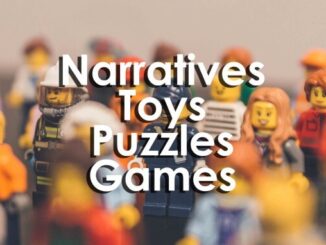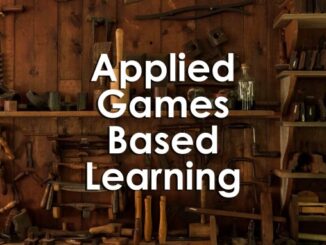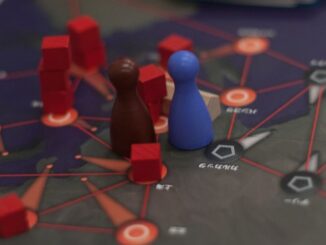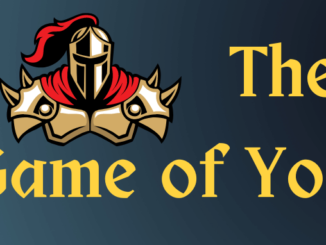
Playing by Yourself – Tabletop Automa
We can’t always find others to play with. Enter ‘Automa’; both ‘official’ – included with published COTS games, and ‘unofficial’ fan-built solo play systems. […]

We can’t always find others to play with. Enter ‘Automa’; both ‘official’ – included with published COTS games, and ‘unofficial’ fan-built solo play systems. […]

Games and simulations are often mentioned together. They do share some of the same characteristics; but games and simulations are different from one another. […]

Around 58% of mobile games are puzzles, mostly playable in single-player mode. They are shown to improve cognitive functions, reduce anxiety and enhance memory. […]

Narratives, toys, puzzles, and games all share some similar characteristics. But what makes them different and how do games tie them all together? […]

The flatness of cards informs how they can be played with, and in the same way, the fact that dice are 3D objects opens up different possibilities for their use […]

How do you apply games-based learning? What specific learning outcomes can you target? What games are specifically available to meet the needs of your students? […]

What game experiences help you to create strategic responses to specific challenges? And which work for developing widely applicable strategic thinking skills? […]

Human beings are fearful in unexpected situations and often ‘imagine the worst’. However, imagination also stimulates human curiosity and makes life fun. […]

What are ‘Social’ mechanics which use players themselves as ‘pieces’ in the game, manipulate player dynamics and relationships, or otherwise ‘play with’ people? […]

Bespoke learning game design fits your learning outcomes precisely, but can be costly. An off the shelf game can be a cost effective and high value alternative. […]

Te first of a series of fully customisable RPG ‘real-play’ tracking sheets to help you gamefully track progress to big life and work goals […]

While D&D is not a Quantified Self (QS) game, you’re not playing yourself, the mechanisms and experiences within RPGs have definitely informed the QS movement. […]

There are different actions that players can take in your game. Alone they are meaningful for the player; but together they form the game’s dynamic. […]

This is design itself as a form of play, and there is just one simple rule that you need to follow to make ‘speculative’ design like this work to a brief. […]

Because almost everyone can easily access mobile games, it makes sense for game development companies to develop or convert games for mobile platforms. […]
Ludogogy 2025